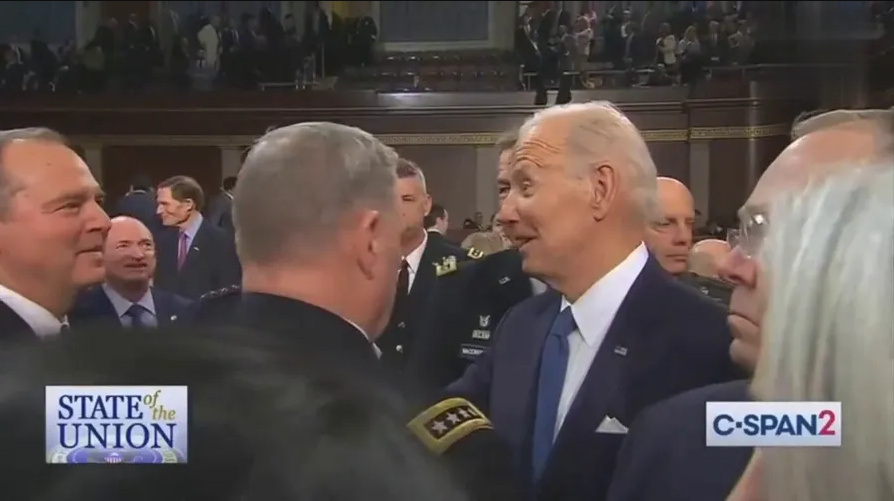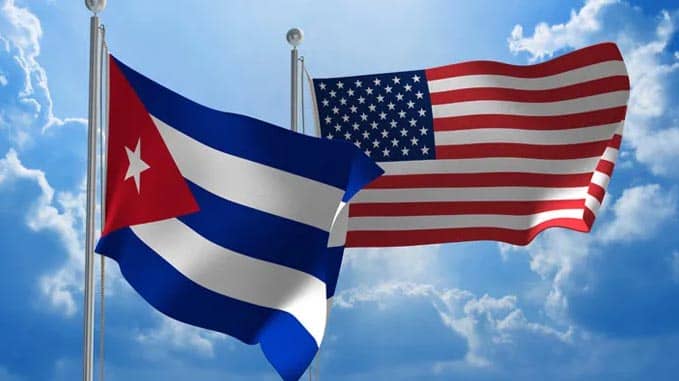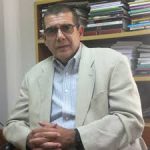The State of the Union Address and other Demons

As happens every year, the act known as the presidential State of the Union address has just taken place in the U.S. Capitol, an exercise that has been carried out publicly and uninterruptedly since 1913 and that aims to provide a kind of balance on the situation of the country and the development of the agenda of the president, who at that time is in power. George Washington initiated the practice in 1790, but Thomas Jefferson discontinued it (the public session) in 1801.
With the passage of time, this exercise has become one more act of political campaigning, which for its simplicity at times competes with the contents of the so-called reality shows, whether on television or social networks.
During most speeches over the decades, every president has claimed that his administration has been the best of all past and future administrations, consistently criticized his opponents and proclaimed them guilty of his failures both inside and outside Congress, and, as a rule, pointed to external enemies as demons responsible for all planetary ills. Rarely is there any introspective, self-critical, or factual analysis.
It is also an act that gradually loses originality because the poses are the same, the signs are repeated with the index finger towards the audience with the other hand placed on the heart, the formal applause is repeated when naming special guests who are in the audience and some of the ladies present wipe with similar discipline real or figurative tears when mentioning recent deaths (which are always in terms of ultimate sacrifice) or other events that provoke unequaled emotion.
More than 90% of the time the television cameras are focused on the figure of the president, plus the vice-president and the leader of the House, who are positioned behind the former. Depending on whether or not these actors belong to the same party, their histrionics, clapping and facial gestures are more or less intense.
In spite of this, an army of U.S. analysts is attentive before, during and after the speech to draw conclusions of all kinds, measure records, build scenarios and talk about agendas and legacies, even if the incumbent government is more, or less, efficient. Phrases are coined and headlines are launched for 24 or 48 hours, until new events bury the whole event in history.
In this text we do not intend to make an analysis of the content of the last text, since at this moment other specialists are engaged in these ponderations from the Cuban perspective and will expose their results shortly.
In this opportunity, the presidential phrase that caused immediate commotion among some politicians, journalists and observers who make a career in that country at the expense of the “Cuban issue” and that led them to use their thumbs intensely to write urgent messages on social networks on their cell phone screens, was said by the president after the speech.
It was at a time when Biden was not speaking officially in front of the cameras either, but was clapping his hands in a friendly manner and politely greeting friends and personalities present, who came to listen to him. In the first circle that gathered around the president when he came down from the podium, there was not the recipient of a phrase that the president addressed to him when he recognized him from a distance. Biden waved his hand and said, “Bob, I really need to talk to you about Cuba.” Screenshot 2023-02-11 at 19-36-50 Title President Joe Biden talks with Sen. Bob Menendez after 2023 State of the Union address Fox News Video
Bob is Robert Menendez, a Democratic senator who is chairman of the Foreign Relations Committee, recently survived corruption charges, and claims to have the “ear of the president” on Cuban issues. In other words, he is the alter ego of Marco Rubio, who apparently had access to the same part of the body ofTrump with relative ease.
Bob and Marquito have competed for years in the management of federal budgets for “regime change” in Cuba, with which they have guaranteed lifetime salaries for their supporters and sufficient contributions for their reelections. By the way neither of them have been able to link their names to any legislation of significance to ordinary Americans.
Upon hearing of Bob’s subpoena, the speculative mushroom cloud immediately spread over Miami. Some congressmen with less flight time (and brain cells) began to express concern about “possible concessions to tyranny”, others waited a few hours to reiterate the litany of issues that separate them from the ideological borders with the island.
There has been terror, for example, at the speculation that there might be some relaxation of the rules limiting the rights of U.S. citizens to travel to Cuba. Imagine thousands, tens of thousands, hundreds of thousands of Americans picking up the rhythms of 2018 and 2019, visiting the Island to return and say “but in Cuba I did not find enemies, I was treated with more civility than in other destinations”.
Among those who classify themselves as “experts on Cuban issues”, because they drink cortadito coffee, eat yucca for lunch once a week and hum Guantanamera without being able to quote the verses, crossword puzzles were set up to imagine the future decisions of the White House regarding Cuba.
In practical terms, what has been happening in recent weeks is that limited steps have been taken “in the right direction” and the damage to the bilateral relationship caused by the previous misgovernment has been minimally corrected. A new cycle has been completed, according to which the irresponsible actions of the U.S. authorities on the immigration issue (and many others) with respect to Cuba, had a direct impact on the generation of an irregular flow of migrants, which does not contribute to the national interest of the United States as a whole.
After listening as president-elect to the summaries of federal agency specialists, which indicated the end of history for Cuba, an already acting Biden waited for months in silence to make a first move on Cuba. Then came the “events of July 11” and the recycled Obamistas felt they had reason enough to wage their own war.
As much as they talked about police abuses, convictions of minors and repressed artists, they managed to confuse many, but only for a short time. The chain of events that they expected (the collapse) did not happen and that they predicted later for a November 25 that did not register any events to speak about. It was enough, rather than leaders with alternative platforms and popular demonstrations, the planners of hard and soft coups saw from their computer screens how those operatives who were part of their “new Cuba” obtained visas, packed their bags and transited through Cuban airports on trips abroad without being disturbed.
The White House quietly asked around Pennsylvania Avenue for answers and found none. Then came another attempt to isolate Cuba at the international level, but still without a proper reading of the events taking place in the Latin American and Caribbean environment. And then came the spiritual fracture of the nasal septum with what happened at the Summit of the Americas organized in Los Angeles. The one who was going to isolate the others remained isolated (for the umpteenth time). The remake of Cartagena de Indias.
No one knows for sure if when Biden said “seriously” to Bob, he meant to ask him for advice that really worked, or to ask him to account for previous proposals that proved to be no longer functional.
Anyone who has had the opportunity to know how American protocol works knows that there are no coincidences, no unplanned phrases, no open microphones by chance. This was not the case when President Obama greeted Army General Raul Castro during Nelson Mandela’s funeral.
Obviously, no one is talking about the secret behind the events referred to is that a process of exchange similar to what happened then can be foreseen, among other things because Cuba, the United States and the world have changed profoundly. There is another radically different ingredient; Washington and Havana do not need to “start” a negotiation, because they are fully aware of those issues that make sense for bilateral cooperation and those on which there are irreconcilable differences.
Moreover, behind each of the 22 memorandums of understanding signed between 2015 and 2017, between the US and Cuba, there is literally a legion of experts, scientists, academics, businessmen and ordinary people who defend the desirability of a constructive dialogue with Cuba. That position also extends to the communities of Cubans living in different parts of the U.S. geography that have seen postponed for years the possibility of hugging a relative, visiting the grave of a friend on the Island, sharing with their godfather of religion, or listening in silence to the rhythms of a music that has been tried to be copied many times, but that only sounds good in the largest Island of the Antilles.
We do not know if the dialogue between the president and the senator, between Joe and Bob has already taken place, however what does seem to be a reality is that some are once again strongly defending in those latitudes the “contaminating embrace” versus the “destructive attack”, or a combination of both, but leaving a space that allows firsthand knowledge of what is happening in Cuba and also to have the possibility of interrelating (and influencing) with the Cuban actors in a direct way.
Although the White House is covering its ears, the Latin American and global message that Cuba is a full and active member of both communities, in which it also has great leadership capacity, is increasingly heard. The G77 plus China has just said it loud and clear.
Publicado originalmente en: https://resumen-english.org/2023/02/the-state-of-the-union-address-and-other-demons/#more-22696




Déjanos tu comentario